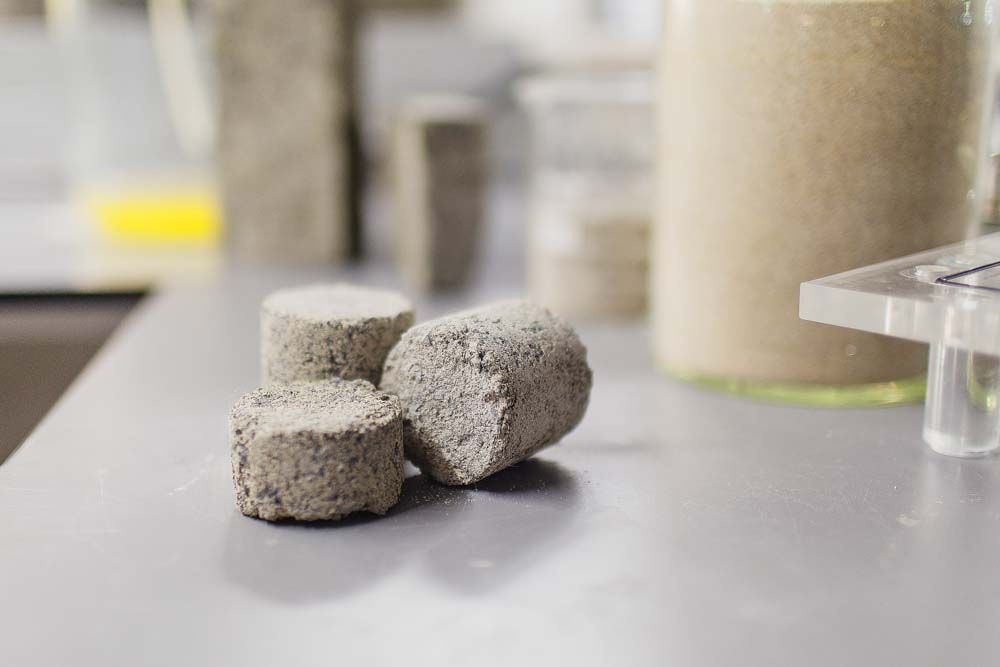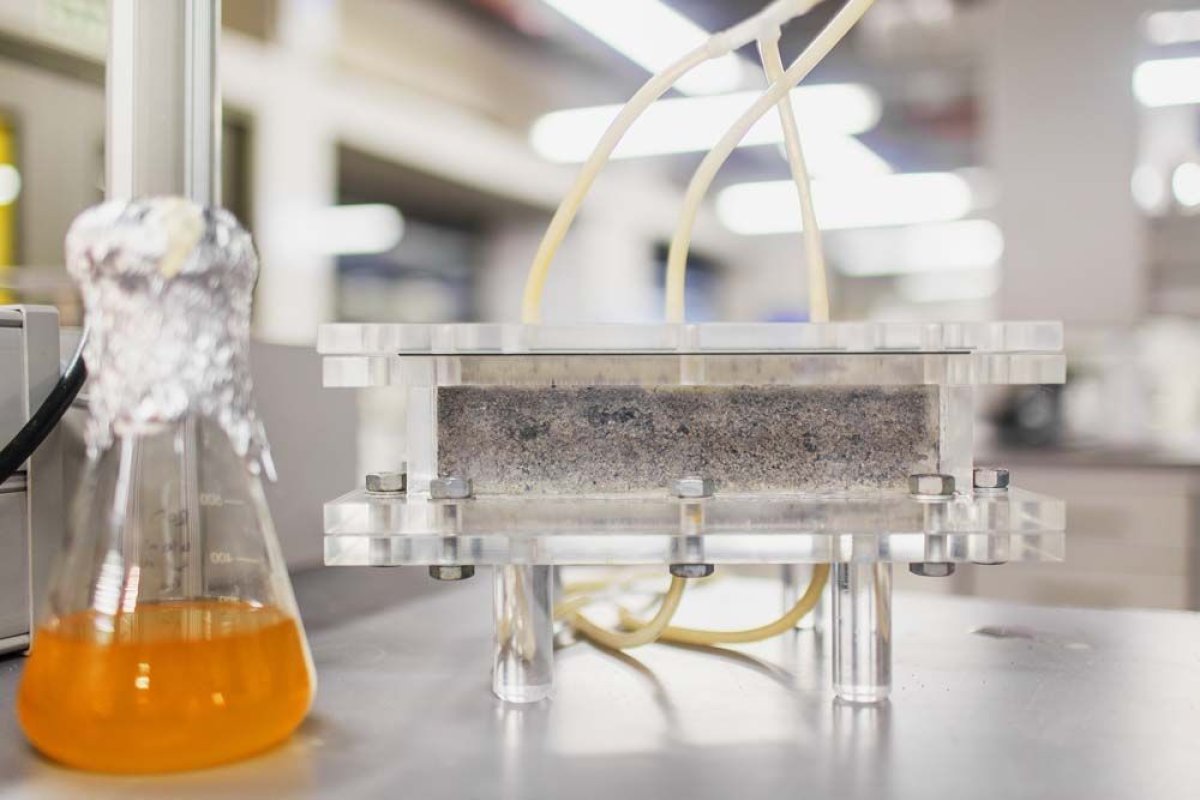
Scientists have grown bricks from urine that could someday be used to construct sustainable buildings. The team behind the "bio-bricks" says there is currently a fundamental shift towards using waste products—and that urine is a "liquid gold" fast becoming a valuable byproduct of our daily lives.
The bio-bricks are created through a process called microbial carbonate precipitation. An enzyme called urease is used to break down the urea in urine, while also producing calcium carbonate. When this is combined with sand it cements and can be tuned into any solid shape—including bricks. The findings have been published in the Journal of Environmental Chemical Engineering.
Dyllon Randall, a senior lecturer in water quality engineering at the University of Cape Town, worked with Suzanne Lambert, a master's student in civil engineering, to create the bricks. Over the last few months, they have tested the various brick shapes for their strength and construction qualities.
At the moment, the bricks are still in the early stages of development. "We still need to optimize the process and we want to further increase the strength," Randall told Newsweek. "We also need to develop an integrated process that makes urine collection easier."
However, researchers believe the bricks could provide a sustainable material for the construction industry. As well as being developed from waste products, the bricks are also more environmentally safe to produce—instead of needing to be fired at temperatures of around 1,400 Celsius, the bio-bricks can be molded at room temperature.

The process of making the bio-brick also results in the production of nitrogen and potassium, which are components of fertilizers. If researchers were able to find a way to turn every component of urine into a useful product, there would be no waste at all. "No-one's looked at it in terms of that entire cycle and the potential to recover multiple valuable products," Randall said in a statement. "The next question is how to do that in an optimized way so that profit can be created from urine."
He told Newsweek there is no set timeline for when the bio-bricks could become commercially viable. He also said the cost of the bricks is not yet known. Should the bio-brick technology develop, however, it could provide a huge shift to the way we currently utilize waste.
"I think more people are realizing the importance of recycling and upcycling of various 'waste' streams," Randall said. "We need to stop thinking about things as waste but rather consider them as resources. This will help us achieve a truly sustainable future.
"I think more industries will realize that they will need to question the status quo and make their processes more sustainable because customers will demand this." He added. "We are excited by this technology and the many possibilities it brings."
Uncommon Knowledge
Newsweek is committed to challenging conventional wisdom and finding connections in the search for common ground.
Newsweek is committed to challenging conventional wisdom and finding connections in the search for common ground.
About the writer
Hannah Osborne is Nesweek's Science Editor, based in London, UK. Hannah joined Newsweek in 2017 from IBTimes UK. She is ... Read more
To read how Newsweek uses AI as a newsroom tool, Click here.








